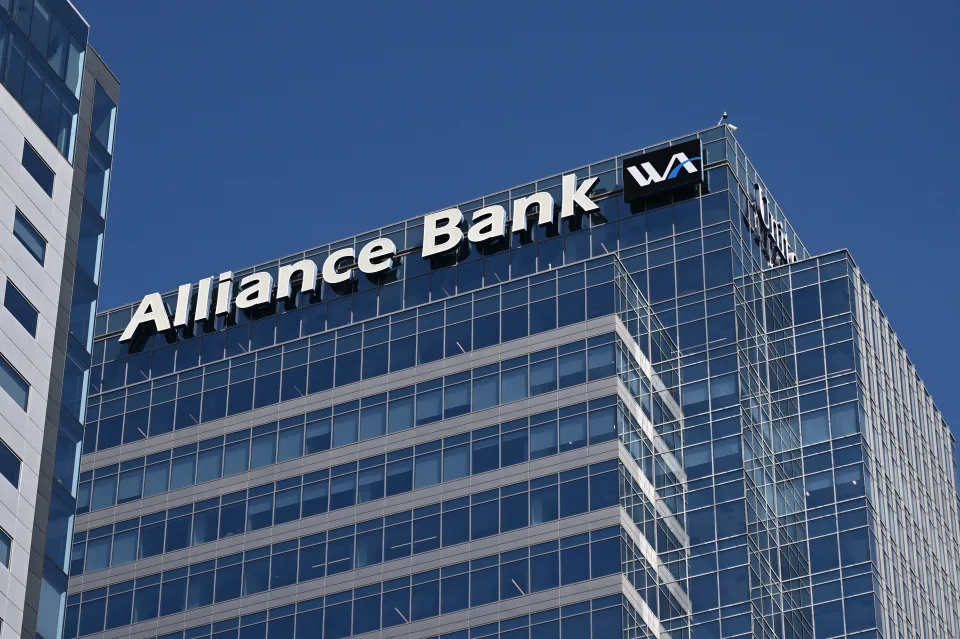PacWest (PACW) announced a $3.5 billion sale of loans to alternative investment manager Ares Management, providing another lift to a regional bank hammered during the industry chaos earlier this year.
The deal, the latest of several moves by the Beverly Hills, Calif.-based lender to shrink its balance sheet, helped push PacWest’s stock up 4% Monday. Several other regional banks also rose.
PacWest is one of several regional lenders that struggled to keep depositors following the March 10 failure of Silicon Valley Bank. Regional bank stocks hit a year-to-date low on May 4, the week regulators seized San Francisco-based bank First Republic and sold the bulk of its operations to JPMorgan Chase (JPM).
But since then, those stocks rallied for four of the last six weeks on optimism that the worst was over for regional banks. For the period, the KBW Regional Bank Index (^BKX) has gained 9%, outpacing the S&P 500. The index closed 5% lower last Friday and slightly lower the previous week.
Another positive note for banks is that their deposit withdrawals have stabilized. Commercial banks have regained approximately $99 billion in deposits since the second week of May, according to data released Friday by the Federal Reserve. Their deposits have fallen 6% since a peak in April 2022.
Many banks also still face pressures from high interest rates and the possibility of stronger capital requirements for banks with more than $100 billion in assets, which will make it more difficult to earn robust profits.
Earlier this month, a number of US bank executives revised down their estimates of net interest income, the crucial margin between what banks make on their loans and pay for their deposits.
“The acute phase of bank stress is over, but a long and winding road remains,” Wedbush analyst David Chiaverini said in a Monday research note.
Wedbush reiterated a “cautious outlook” for second quarter results, with the expectation there will be more downward revisions in net interest income once banks begin reporting in the second half of July.
The chief financial officer of Western Alliance (WAL), another regional bank that struggled to keep depositors after the fall of Silicon Valley Bank, told Yahoo Finance on Friday that his institution’s deposits were rising after the tumult of March.
“We’re growing deposits again, and we’re up quarter to date, and we expect to be up quarter to date by the end of this month,” said Dale Gibbons, the CFO.
Its stock rose 2% Monday.
Gibbons said Western Alliance has managed to bring back depositors in part by showing larger clients the bank’s more granular financial data under nondisclosure agreements.
He also said “we welcome more regulation,” while noting that higher capital requirements don’t solve every issue. In the case of Silicon Valley Bank, he said “there were certainly some management failures, and regulatory oversight could have been more robust.”
Few banks came under more pressure during March than PacWest, which lost 17% of its deposits in the first quarter and posted a loss of $1.2 billion. Year to date its stock is still down 68.5% as of Friday’s close despite rallying from its lows in the spring.
In May, it said it was exploring strategic actions such as asset sales. Later that month it sold a $2.7 billion real-estate construction loan portfolio to Kennedy Wilson Holdings. It also sold some assets of a real-estate lending business to Roc360, a New York City firm that lends to real estate investors.
The sale announced Monday has not been completed. The lender has received $2.01 billion before transaction costs, with the remaining loans committed but not yet sold.
“This sale, in addition to the approximately $2.36 billion of cash proceeds received from the previously closed sale of National Construction loans, will improve our liquidity and our capital ratios,” PacWest said in its SEC filing for the transaction.

